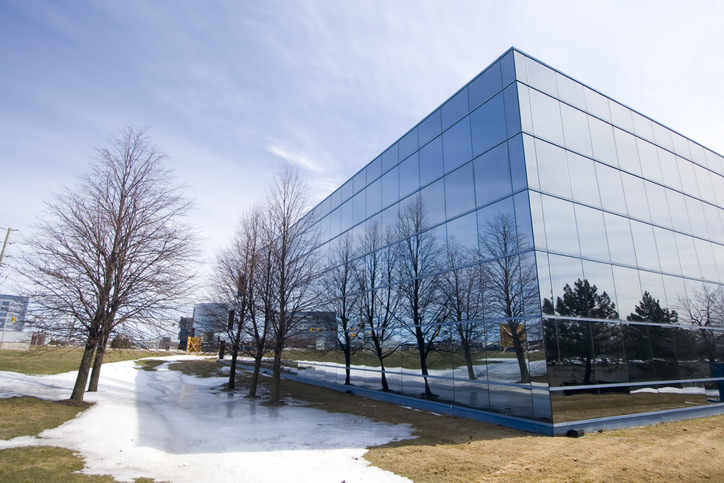 Winter damage is common in commercial buildings. The harsh winter season is approaching, and your commercial properties must be protected. Autumn is the perfect time to run through your winter checklist to ensure your tenants’ safety — no business owner wants their personal property damaged due to harsh weather conditions.
Winter damage is common in commercial buildings. The harsh winter season is approaching, and your commercial properties must be protected. Autumn is the perfect time to run through your winter checklist to ensure your tenants’ safety — no business owner wants their personal property damaged due to harsh weather conditions.
It can lead to a loss of revenue, and filing insurance claims is a pain. Understanding what plans cover damage from snow or ice is crucial, especially if you’re managing multiple commercial properties. For example, the
Insurance Information Institute reported over $2 billion in insured losses primarily caused by winter weather damage.
It can be complex knowing what your insurance covers. Do some research and contact your provider if you have questions about damage caused by winter weather or freezing temperatures. Commercial landlords need to take steps during autumn and perform preventive maintenance to protect their properties. Snow, ice, sleet and hail need to be considered when preparing for the winter season.
Download Printable Article (PDF) >>>
Watch Out for Winter Damage in These Areas of Your Properties
Below, we’ll discuss some winter damage to watch out for. It’s critical to inspect all these areas of your commercial properties to protect them from the harmful effects of winter weather.
1. HVAC Systems
Your property’s HVAC systems need to be routinely inspected to ensure they’re working properly. When the thermometer drops, multiple issues can arise in a building’s HVAC system. Here are seven of the most common concerns regarding HVAC systems in the winter:
• Frozen pipes
• Uneven airflow/temperature
• Malfunctioning heat pump
• Faulty pilot light
• Dirty heater filters
• Carbon monoxide leaks
• Broken thermostat
Heat is essential to any building in the winter, and when there’s a significant drop in temperature, any of these seven issues can arise. Be sure to call your local HVAC company so they can address any problems that cause these issues and get them fixed promptly.
2. Plumbing
Frozen pipes can cause severe damage to a building’s plumbing system. You need to ensure pipes have proper insulation to prevent them from freezing due to winter temperatures. Hiring licensed and trained plumbers and
having them come during October and November is essential.
Plumbers can look at your system and highlight areas that need more insulation to protect them from freezing temperatures.
When pipes freeze, the water inside of them expands, potentially causing cracks. It’s also recommended that you keep temperatures indoors above 55 F to keep heat circulating through the plumbing system. The last
thing you want is for pipes to burst, leaving water damage behind. Take preventive measures to ensure your pipes don’t freeze in the winter.
3. Asphalt Damage
When the snow starts to hit the ground or ice freezes over the surface, it’s common for asphalt to crack. Asphalt can be either replaced, patched or resurfaced, and this type of damage will cost you. t’s important to mention that snowplows are necessary during the winter, and the damage they can cause is often inevitable. Keep in mind that resurfacing or replacing asphalt can only take place in the warmer months. It’s also essential to consider removing snow or ice from the asphalt in front of your commercial properties. They can pose hazards to anyone walking or running on sidewalks. You may be held liable for someone falling in front of your commercial property. Conduct your due diligence and pay attention to parking lots, sidewalks and any other walkways.
4. Roof Damage
It’s not uncommon for roofs to experience damage during the winter months. Heavy piles of snow, large pieces of hail, or sheets of sleet and ice can all gather on the roof of your property and cause collapse, which is the
worst-case scenario. Repairing a collapsed roof is quite the expense, so ensure that the top of your building is strong enough to withstand inclement weather.
Thankfully, if there is roof damage on any of your properties, you don’t need to wait until the spring to repair it. You can contact your local roofing company to get an estimate of the cost of repairs. One of the more common problems during the winter is ice dams. This is a layer of ice that forms on a roof, but it prevents water from draining off when snow or ice melts. If the top of your property is up to code, you shouldn’t experience too many issues. However, it doesn’t hurt to get it checked out during autumn to ensure it will handle any loads of snow or ice once winter storms begin to hit.
5. Power Outages
Winter storms often cause power outages. The last thing you want is for your commercial businesses to deal with freezing temperatures within their buildings. As the winter season approaches, you should let your tenants know that blackouts may occur so they can stock up on essential items. However, it’s also important to act quickly if outages do occur within your properties. By properly maintaining your electrical systems throughout the year and having a backup generator, power outages may not cause too much damage to your property. Be sure to research your state’s laws about blackouts and how long you have to repair any issues with your electrical system.
6. Insulation
Compromised insulation can cause heat loss and leave your tenants paying extra for heating services. Ensure that the level of insulation is sufficient before freezing temperatures come into play. Thankfully, technology has made leaps and bounds, and it’s easy enough to hire an expert to see which areas of your property can use extra protection.
Without proper insulation, your property is susceptible to damage caused by freezing or below-freezing temperatures. Pipes can freeze, health risks become prominent, and dust and odors cannot be filtered properly. Ensure your building is sufficiently insulated before winter comes.
All this damage can negatively affect your tenants’ well-being and your wallet. Ensure that your commercial property is ready to withstand inclement weather. Avoid Damage to Your Commercial Properties It takes more time, effort and money to repair property once the damage has been done. It takes much less time to take preventive measures to ensure buildings can handle snow, sleet, ice or hail storms. Your tenants will appreciate you, and your investment will remain safe during the winter.
Rose Morrison is a residential and commercial real estate writer and the managing editor of Renovated. To see more of her work visit:: https://renovated.com/


